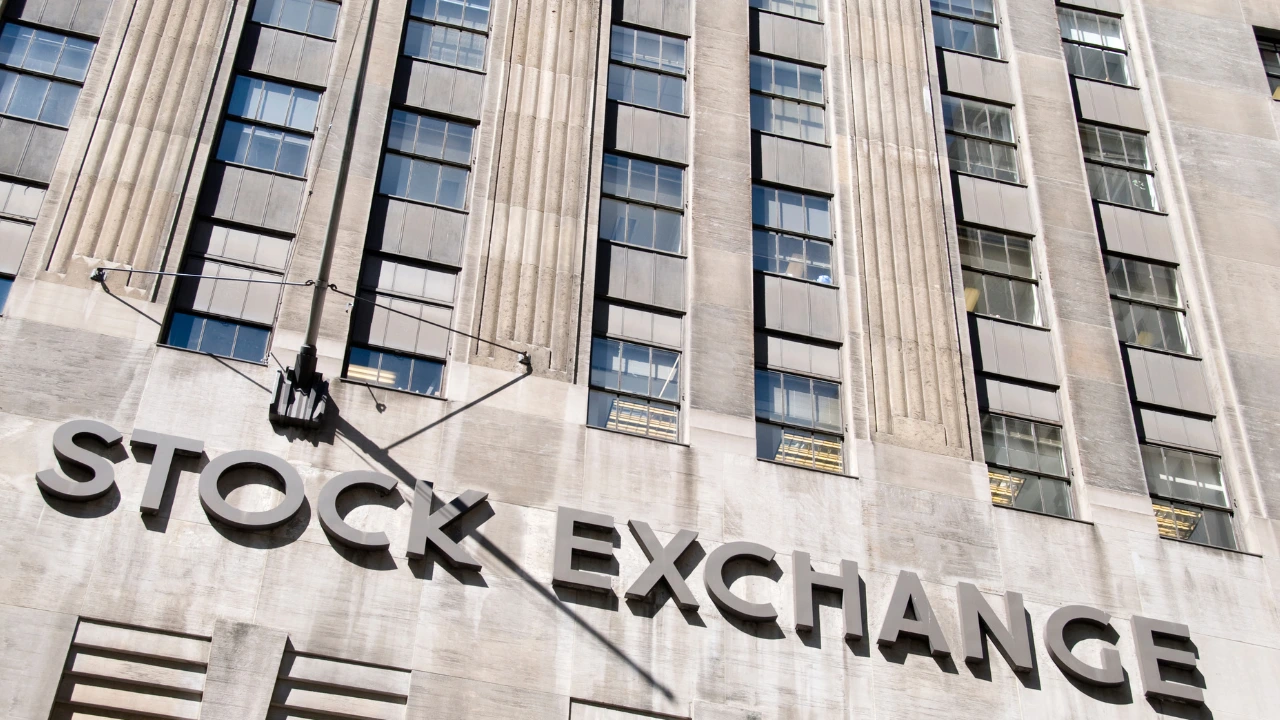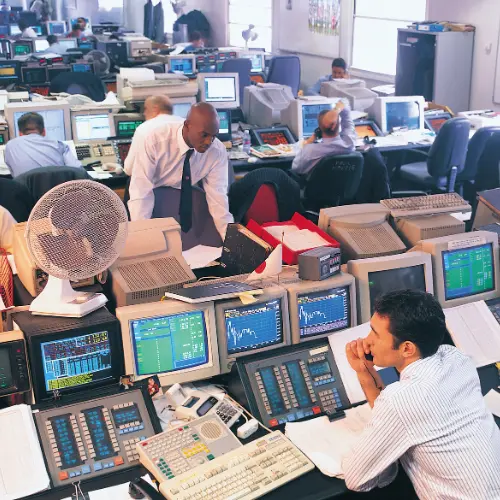The stock market for most people brings in the classic image of a busy trading floor with traders shouting, signaling with hand gestures and electronic quotes on a large screen flashing numbers which constantly keep changing. As the numbers on the screen change, so does the reaction of traders participating, who probably would have made or lost a fortune in a blink of an eye.
While some of that imagery holds true but the stock market at its core is a mechanism that connects a company seeking to raise capital with investors seeking to grow their wealth. It is a dynamic, complex, and interconnected system that reflects the collective behavior of all the market participants. Therefore, understanding its fundamentals is important for anyone looking to participate in the stock market
Table of Contents

What are Stock Markets?
The stock market is a place where traders or investors buy and sell shares of publicly listed companies. It is colloquially known as the share market or capital markets as well.The Stock markets function on the core principle of Supply and Demand. When more investors want to invest in a particular company’s shares, the prices tend to go up. Conversely, when there are more sellers and than buyers, the prices tend to fall. There are number of other factors like performance of a company, economic conditions, investor sentiments that influence the prices
How do stock markets work?
Think of a company keen to expand its business operation, develop a new product or invest in modern technology. One way to do that is for that company to go to a financial institution and seek the required capital from them against an interest payment.
The other way to do it is for the company to seek capital from the public at large (without interest payment). For this the company issues shares of ownership called stocks, shares, or equities. Therefore, when you buy a stock of a company you are buying a small piece of that company. Therefore, as a stock owner or a shareholder of a company, the investor seeks appreciation on the capital invested as the company grows and progresses. Some companies also reward their shareholders with dividends from time to time.
This is a win-win situation for both the company seeking capital to expand its business and an investor willing to take risks to make that extra return on his investment. This is the principle on which capital markets or stock markets globally operate.

The other reasons for a company going public could be: –
- To pay off existing debts.
- Working capital requirement to fund day-to-day operations.
The prices of these ‘pieces of ownership ‘in a company fluctuate based on many distinct factors. However, it boils down to pure demand and supply. If more people want to buy a particular stock (high- demand), the prices are likely to go up. Conversely if more people want to sell (high supply), the prices are likely to go down.
The designated place where these transactions take place is the stock exchange.
Where does stock trading happen?
Stock trading occurs on the ‘Stock exchanges.
Stock exchanges are a global, organized, and well-regulated marketplace where buyers and sellers meet to execute their buy/sell transactions in stocks.
Some examples of stock exchanges globally are:
- Bombay Stock Exchange (BSE), India
- National Stock Exchange (NSE), India
- New York Stock Exchange (NYSE), USA
- National Association of Securities Dealers Automated Quotation (NASDAQ), USA
- Shanghai Stock Exchange (SSE), China

There are three important roles which a stock exchange plays: –
- Fair and Transparent Trading: – A stock exchange is a platform with rules and regulations which are equal for all.
- Matching trades: – The primary function of a stock exchange is to match the order of a willing buyer who wants to buy stock (of a listed company) with a willing seller.
- Price Discovery: The exchange helps determine the price of a stock or security at any given moment, through the interaction between the buyers and sellers.
The Transition to Electronic Stock Trading
Often as seen in movies traders on the trading floor meet and conduct trades through shouting and hand signals. This is how stock exchanges functioned till a few decades back. These were called Physical exchanges. Although now majorly done away with, they do exist in some parts of the world.
Most of the global stock trading now takes place on electronic exchanges. Since this transition from physical exchanges to electronic exchanges, the process of executing trades (buy or sell) has not only become more efficient but faster too.
Why are stock markets important?
The Stock market plays a key role in a healthy economy. They are important for both businesses and investors.
- For a growing economy, innovation, innovative products, or services are crucial. Businesses with innovative products or solutions seeking to raise capital from the public at large are given a platform to do so, in the form of the stock market. These businesses can issue shares (part ownership) and sell them to the public in return for their money. Without this platform, businesses would have limited options to raise large sums of money.
- An investor (individual or a financial institution) who is willing to take extra risks to potentially grow his savings is also given a platform in the form of stock market to do so. By buying stocks or shares an investor becomes a part-owner of the company and can make a profit on his investment as the company performs well. It lets the public participate in the economic growth of a nation and thus encourages investments in promising businesses.
- The interaction between buyers and sellers also helps in determining the fair value of a company. This information is essential for making an informed decision and helps allocate resources efficiently.

Is the stock market a true economic indicator?
In my view it is a bit more nuanced. Stock prices reflect economic sentiment, but they do not always accurately predict the future.
Rising stock prices usually is seen as a sign of optimism in investors about future economic growth, as they are more willing to take risks. Conversely, falling prices can signal concerns about a potential slowdown.
The stock prices are influenced by many factors beyond just the overall economy, such as interest rates, geopolitical stability, investor sentiments, inflation, currency exchange rates, etc.
Therefore, I would say stock market offer an excellent insight into prevailing market sentiments of all investors put together, but not a foolproof economic indicator of a country.
Who are the key players?
- Companies: Issues shares or stocks to raise capital.
- Investors: Buys and sells shares to grow their wealth.
- Exchanges: Provides a platform for buying and selling stocks.
- Brokers: Simplifies transactions between buyers and sellers.
- Regulators: Supervises the market to ensure fairness and transparency.
- Analysts: Professionals involved in researching and giving recommendations to investors
- Financial Media: Reports on market news and trends, helping investors stay informed.
In conclusion, the stock market connects companies seeking capital for business expansion with investors looking to grow their wealth. It is a well-regulated, fair, and transparent platform where global companies and investors meet to exchange capital for equity .The stock markets remains vital for both economic growth of a country and investment opportunities .
In the short run , the stock market is a voting machine , but in the long run ,it is a weighing machine .
-Benjamin Graham

